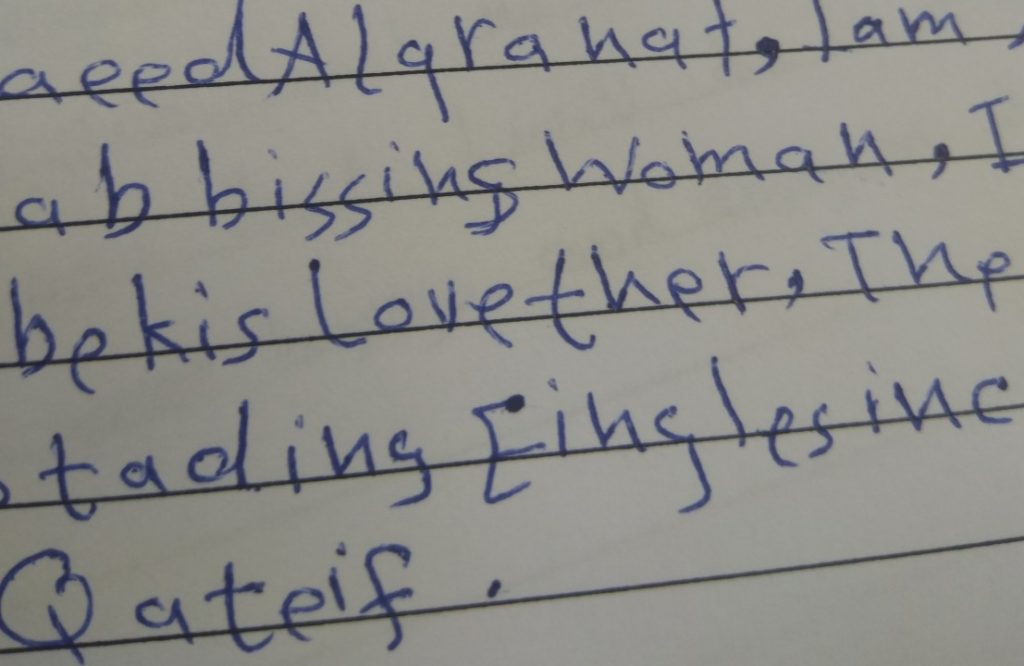Learning Theory: Peer Power

First, a little background: I’m currently an English language instructor at a technical college in Saudi Arabia. My young lady students come from middle class backgrounds and typically have a beginner or lower intermediate usage of English. They all have a grasp of the English alphabet, but many of them have had to work out their own way of writing it. Keep in mind, Arabic not only is its own script, but is written right to left.
Yesterday, I did something I’d done three times before. It was the final hour of the week, after lunch when they’re all wired with carbs and the desire to start the weekend. But they’re also a relatively hard-working group of young women. I created stations (loosely speaking) where they could either read and discuss, or do some error correction. These are largely unsupervised activities; as long as they’re working on the activity and not being disruptive, I generally leave them to their own devices. I did this because there are at least 3 students whose writing I find extremely difficult to read. They have fine ideas, but their execution of the letters needed addressing. The previous times I had done these “tutorials”, I was the tutor. But this time, I thought to myself, “why should I?” Obviously, these students’ peers have figured out how to shape the letters, so why not let them help each other?
I paired the two tutees with two students whose writing I found rather impeccable. They were extremely happy to help. Keep in mind, I didn’t give them any warning of this whatsoever. I literally called out the four names and said “sit with me”. I gave them some lined paper and asked the tutees to re-write their paragraphs with the help of their tutors. Watching them work together filled me with pride. Yes, they spoke in Arabic, but that was beside the point. The point of this was to slow down, understand the shapes of the letters, the best route to form the letters and to write clearly.
One of the tutees is actually one of my best students in terms of participation and speaking. At first she was exasperated that I pointed out her writing style as being problematic. She fell into the same thought-pattern many people unfamiliar with language learning do: that all the skills come equally quickly and well at the same time. But in fact, when we look objectively at the learning process, speaking (fluency) very often comes quicker than writing fluency and precision. You can jokingly think of it as the distance the linguistic information has to travel: what’s closer to the brain — the mouth or the hand?
Overall, I’m extremely happy with the results of this initial peer tutor session. I wish I had thought of it sooner. I’m almost always thinking of ways to empower my students to find answers on their own and to take responsibility for their learning. And for the students who were the tutors, I enjoy fostering a sense of confidence and giving them opportunities to demonstrate their leadership.
Have you tried peer tutoring in the classroom? How did it work out for you? What were the results?

Leave a Reply
You must be logged in to post a comment.